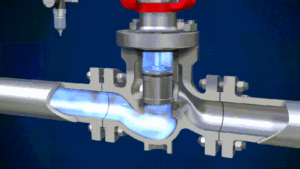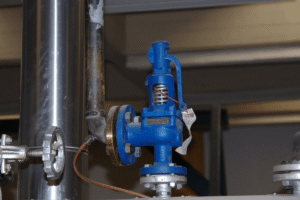Have you ever walked into your bathroom only to find water pooling on the floor? This can be a frustrating and concerning issue for many homeowners. Water pooling in the bathroom is not just an inconvenience but a potential hazard that can lead to further damage if not addressed promptly. Understanding the causes and solutions for this problem is crucial for maintaining a safe and functional bathroom.
In this article, we will explore the common causes of water pooling in the bathroom and provide practical solutions to fix and prevent this issue. Whether you’re dealing with a minor leak or a more significant plumbing problem, we’ve got you covered.

Common Causes of Water Pooling
Poor Waterproofing
Poor waterproofing is one of the leading causes of water pooling in bathrooms. If the waterproof membrane in your bathroom is compromised, water can seep through and accumulate on the floor. For more information on bathroom waterproofing, visit bathroom waterproof membrane.
Leaky Fixtures
Leaky fixtures such as sinks, toilets, and showers can lead to water pooling. Even a small leak can result in significant water accumulation over time. If you suspect a leaky sink, you can learn how to fix it by visiting bathroom sink leak fix.
Clogged Drains
Clogged drains are another common culprit. When drains are blocked, water cannot flow freely, leading to pooling. Regular maintenance and cleaning of drains can help prevent this issue.
Improper Slope
If the bathroom floor is not correctly sloped, water will not drain properly, resulting in pooling. This issue often requires professional attention to correct the floor slope.
Solutions for Water Pooling
Regular Maintenance
Regular maintenance of bathroom fixtures and drains is essential to prevent water pooling. This includes checking for leaks, cleaning drains, and ensuring that all fixtures are working correctly.
Professional Inspection
If you’re unable to identify the cause of the pooling, it may be time to call in a professional plumber. They can conduct a thorough inspection to determine the root cause and recommend appropriate solutions.
Repair Leaks Promptly
Address any leaks as soon as they are discovered. This includes fixing leaky sinks, toilets, and other fixtures. For advice on fixing a leaky toilet hose, visit leaky toilet hose bathroom.
Improve Waterproofing
Enhancing the waterproofing of your bathroom can prevent water from seeping through floors and walls. For more in-depth information on this topic, visit common bathroom leaks.
Preventative Measures
Install Drain Covers
Installing drain covers can help prevent hair and debris from clogging drains, reducing the risk of water pooling.
Regularly Check Seals and Caulking
Inspect seals and caulking around fixtures and tiles. Replace them if they show signs of wear and tear to maintain a waterproof barrier. Learn more about bathroom caulking by visiting bathroom caulking leak.
Monitor Water Usage
Keep an eye on water usage to detect any sudden increases that might indicate a leak. This can be a proactive way to catch potential issues early.
Conclusion
Dealing with water pooling in the bathroom can be a daunting task, but with the right knowledge and preventative measures, it is manageable. By understanding the causes and implementing the solutions discussed in this article, you can ensure that your bathroom remains safe, dry, and functional. Don’t hesitate to seek professional help if needed, as addressing the issue promptly can save you from more significant problems in the future.

FAQs
Why is there water pooling in my bathroom?
Water pooling in your bathroom can result from various issues such as leaky fixtures, clogged drains, poor waterproofing, or an improper floor slope.
How can I fix a leaky bathroom sink?
Fixing a leaky bathroom sink involves identifying the source of the leak, which could be the faucet, pipes, or seals. Tightening connections or replacing faulty parts can often resolve the issue. You can find a detailed guide on fixing sink leaks here.
What should I do if I can’t find the source of the water pooling?
If you’re unable to locate the source of the water pooling, it’s best to call a professional plumber. They have the tools and expertise to diagnose and fix hidden leaks. For more signs of hidden leaks, visit signs of a hidden water leak.
This article contains affiliate links. We may earn a commission at no extra cost to you.



